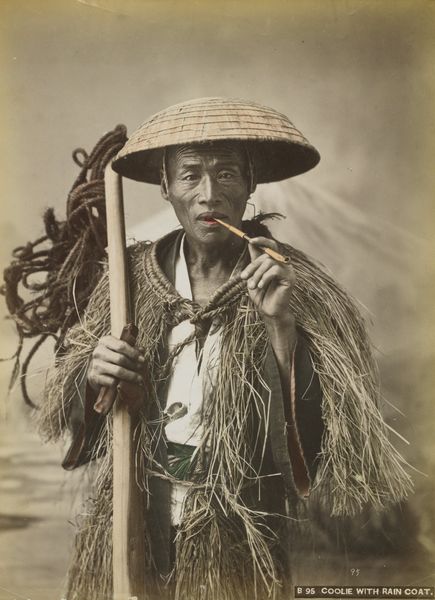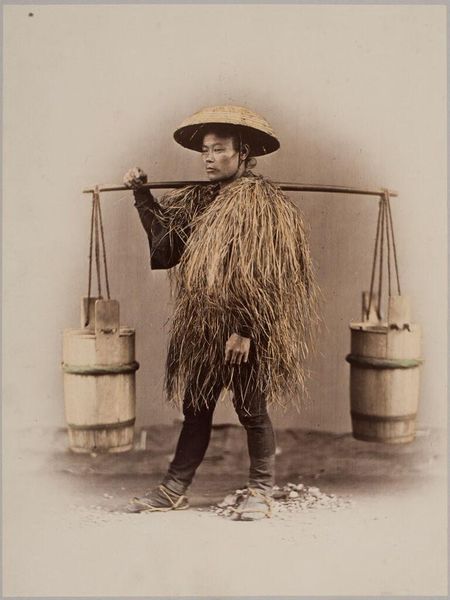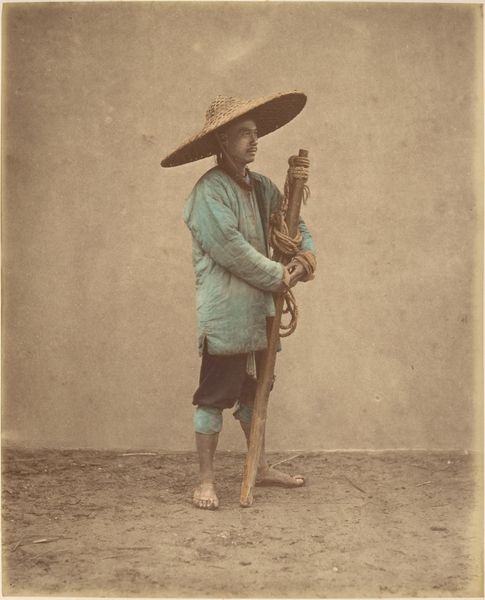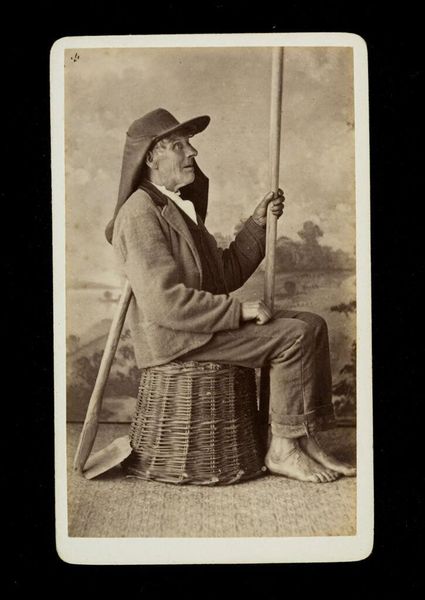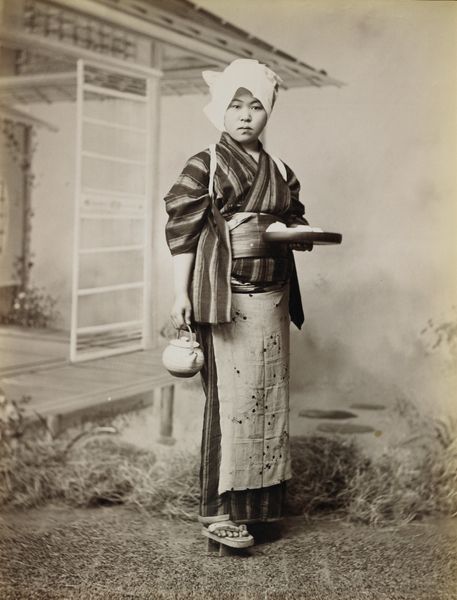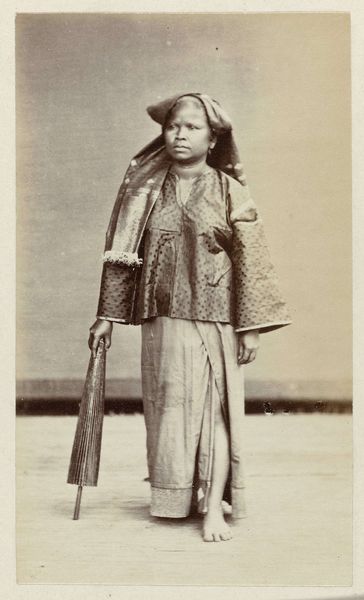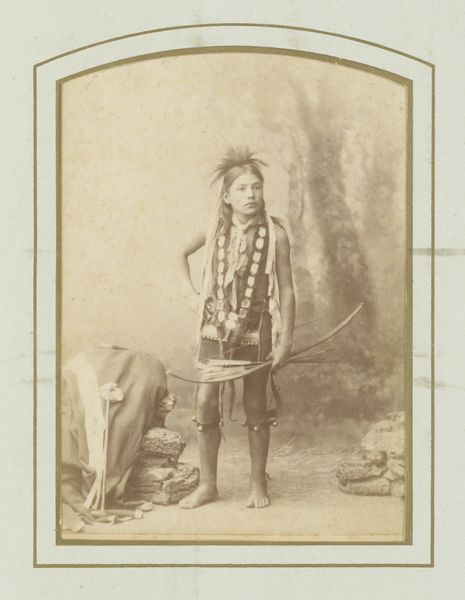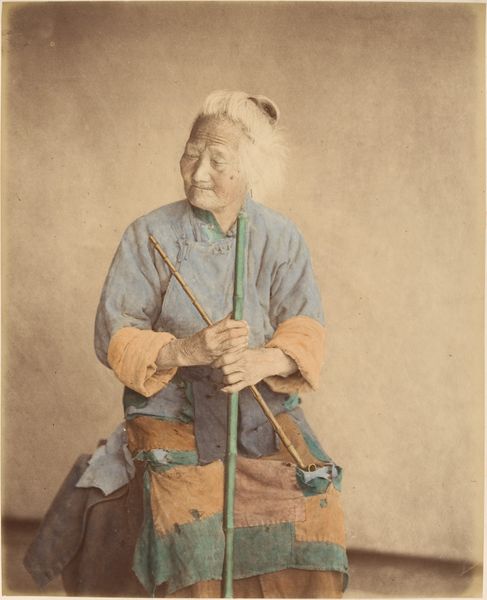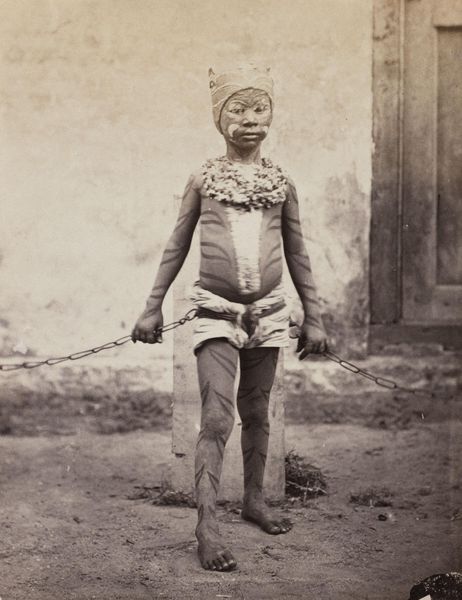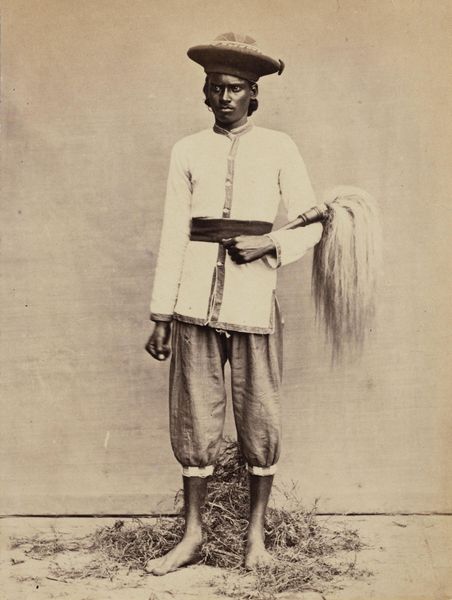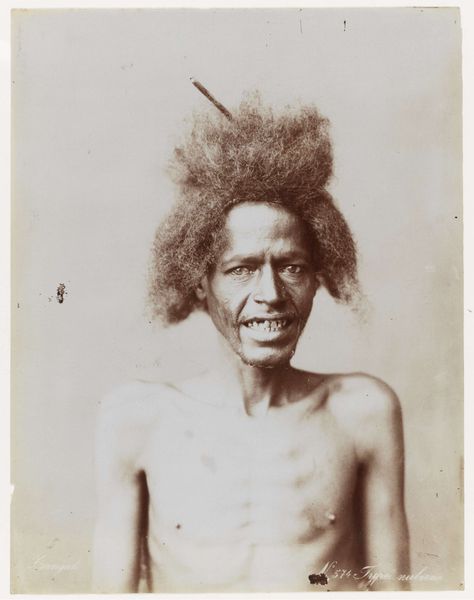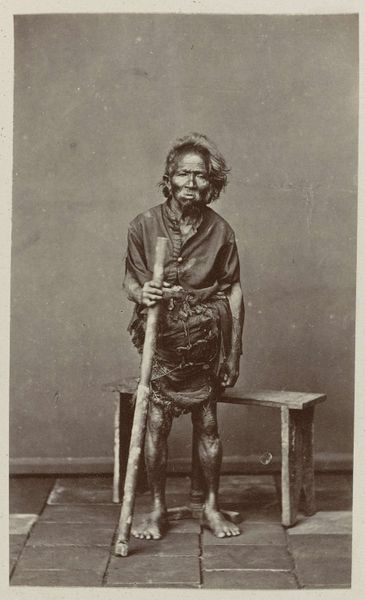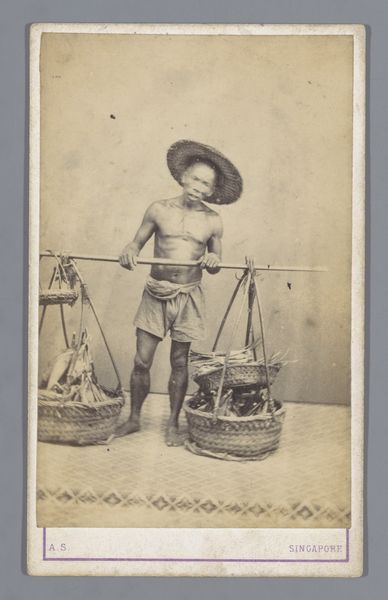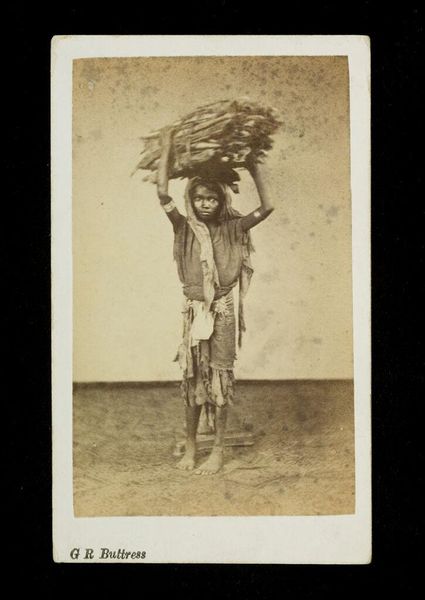
print, photography, albumen-print
portrait
asian-art
photography
albumen-print
Dimensions: 25.2 x 19.7 cm (9 15/16 x 7 3/4 in.)
Copyright: Public Domain
Editor: This albumen print from the 1870s by Suzuki Shin'ichi, titled "Farm laborer with rain coat (mino)," presents a dignified portrait. There's a stillness to it, a quiet strength in the subject's posture, but it also feels staged. What strikes you about this piece? Curator: You’re right, there’s a tension between the constructed image and the real conditions of labor. Consider the Meiji Restoration occurring at this time, a period of intense Westernization. Photography became a tool not just for documentation, but for constructing ideas about Japanese identity for both internal and external consumption. The 'mino,' the traditional raincoat, signifies a connection to rural life, yet the subject's gaze feels carefully posed, distanced from the actual labor it represents. Doesn't it almost exoticize the farmer? Editor: I see what you mean. It’s not just a neutral depiction of a worker; it's performing something. Almost like a stereotype? Curator: Exactly. It raises questions about who this image was created for and what narrative it was intended to convey. Was it to show the 'picturesque' quality of Japanese labor to a Western audience, or to reinforce a certain national identity during a time of rapid change? The very act of photographing someone already implies a power dynamic. Editor: That’s a great point. I hadn’t considered the photographer's role and the implications of ‘framing’ someone in this way. Curator: The clothing becomes more than just practical attire; it transforms into a symbol, loaded with socio-political meaning. And how does that interplay with our contemporary understandings of labor, representation, and cultural exchange? Editor: It gives me a lot to think about. Seeing the portrait as more than just an image but as a constructed narrative changes everything. Thanks! Curator: Indeed! It prompts us to be critical of representation and its relationship to power.
Comments
No comments
Be the first to comment and join the conversation on the ultimate creative platform.
